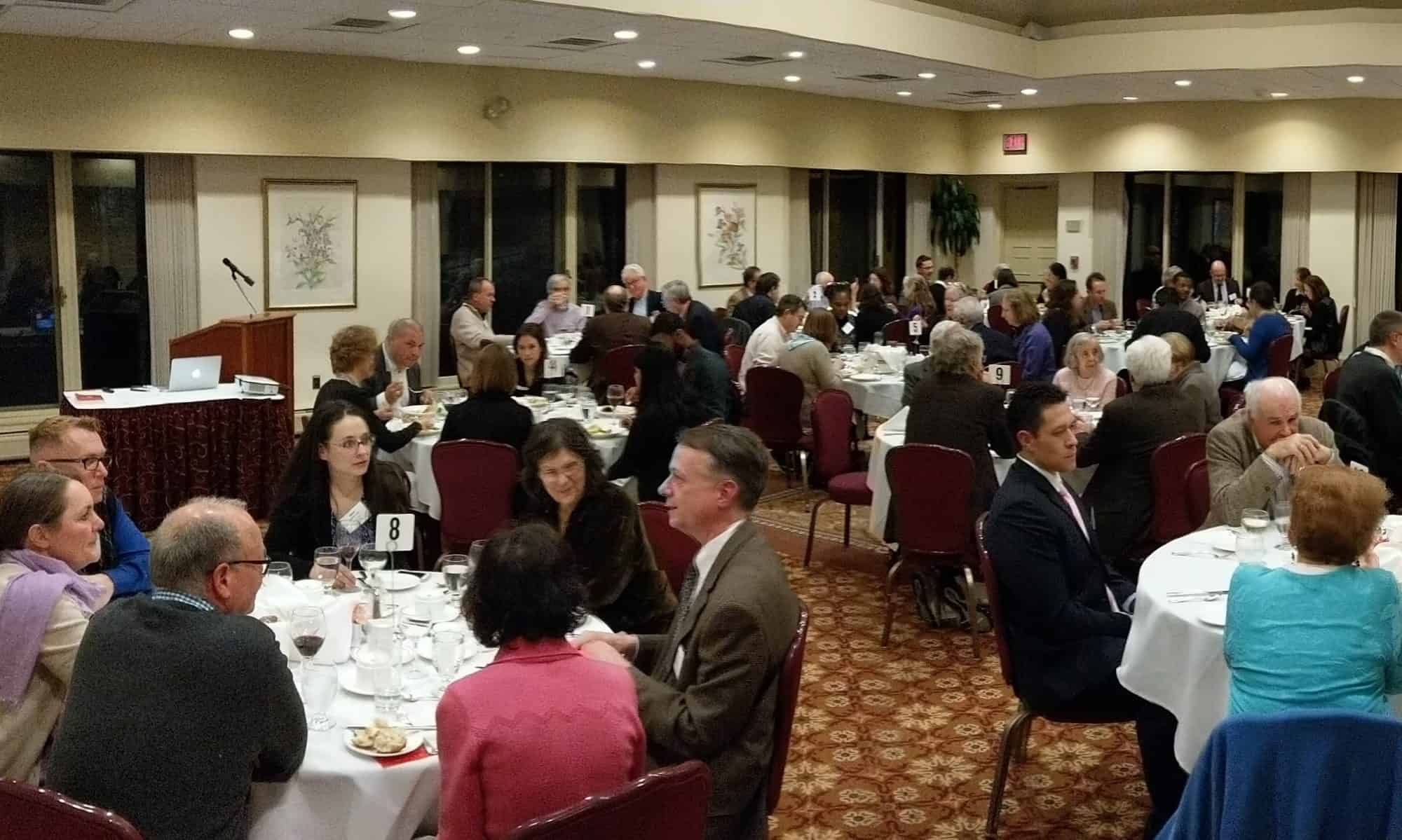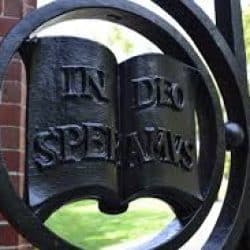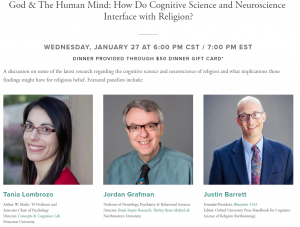Our next (virtual) roundtable event in 2021 will be Thursday, June 17th featuring Harvard Professor of Genetics George Church and Asymmetrex Founder & Director James Sherley.
Roundtable 7pm Wed., Jan. 27th, 2021
Fall 2020 Roundtable–Register now!
7:00pm Thursday, Nov. 12th – Click here for more details.
JTF Prize Ceremony – Sept. 24
Templeton Prize Ceremony
You are warmly welcomed to attend a virtual ceremony on September 24 at 7PM EDT honoring Templeton Prize Laureate and NIH Director Fellow Francis Collins, appearing live from the National Academy of Sciences with John Templeton Foundation President Heather Dill. Other speakers include N.T. Wright and Surgeon General Jerome Adams. The event will include an opportunity to submit questions in a moderated Q&A with Francis Collins at the end.
Contact us if you’d like to register for the ceremony. Only guests registered before Sept. 15 will receive the link to attend.
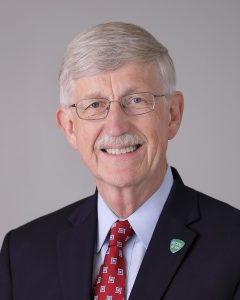 Dr. Collins, a geneticist, physician, and Director of the National Institutes of Health, led the Human Genome Project to its successful completion in 2003 and has advocated throughout his career for the integration of faith and reason. He was announced on May 20th as the 2020 Templeton Prize Laureate.
Dr. Collins, a geneticist, physician, and Director of the National Institutes of Health, led the Human Genome Project to its successful completion in 2003 and has advocated throughout his career for the integration of faith and reason. He was announced on May 20th as the 2020 Templeton Prize Laureate.Summer 2020 roundtable event!
We’re trying something new this summer which we’re very excited about–we hope you’ll join us! More info. here.
2020 Templeton Prize Awarded to NIH Director
Francis Collins is the Director of the National Institutes of Health and led the Human Genome Project to its successful completion in 2003. Throughout his career, he has advocated for the integration of faith and reason.
In his scientific leadership, public speaking, and popular writing, including his bestselling 2006 book, The Language of God, Collins has demonstrated how religious faith can motivate and inspire rigorous scientific research. He endeavors to encourage religious communities to embrace the latest discoveries of genetics and the biomedical sciences as insights to enrich and enlarge their faith.
Spring 2020 Roundtable–POSTPONED
Our next event WAS going to be 6pm Tuesday, April 14th at the Brown Faculty Club…but in light of recent events, we will postpone until Fall 2020.
More details later this summer.
Fall 2019 Roundtable event
“In the Beginning, Sound: What physics and jazz can teach us about cosmology and consciousness”
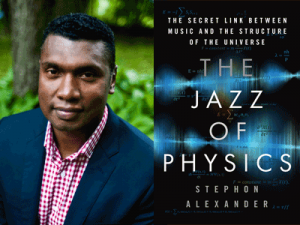
6:00pm Wednesday, October 30th at the Brown Faculty Club
More research on what we know to be true…
The Economist, University of Chicago, CNBC, Thrive Global: “Sharing a plate of food leads to more successful negotiations”
A Cup of Coffee
[Below is a modified excerpt from Faculty Roundtable founder, Dave Thom, who uses the metaphor of a cup of coffee to describe what our roundtables are all about.]
The Providence Roundtable energizes and equips subsets faculty and grad-students at Brown University and the greater Providence area to engage in exploring the intersections of science, religion, and society.
 The cup: Science and technology’s titans are increasingly being turned to for cultural and ethical leadership as if broadly accessible norms of understanding come exclusively from science, rational argument, and natural intuition, and that any common grounds with religious leadership in any crucial area of shared concern is entirely coincidental.
The cup: Science and technology’s titans are increasingly being turned to for cultural and ethical leadership as if broadly accessible norms of understanding come exclusively from science, rational argument, and natural intuition, and that any common grounds with religious leadership in any crucial area of shared concern is entirely coincidental. The coffee: Providence Roundtables convene science and technology faculty with colleagues in every academic discipline and with a variety of religious leaders. Roundtable evenings are sponsored by chairpersons dedicated to fostering hospitality-guided dialogue that explores the intersections of science, faith, and philosophy, net-working these cultural and ethical leaders together.
The coffee: Providence Roundtables convene science and technology faculty with colleagues in every academic discipline and with a variety of religious leaders. Roundtable evenings are sponsored by chairpersons dedicated to fostering hospitality-guided dialogue that explores the intersections of science, faith, and philosophy, net-working these cultural and ethical leaders together.- The cream: Roundtable participants commonly concur in written reviews that thoughtful theological thinking shared at The Roundtable actually includes the importance of experience and experimentation examined alongside text, tradition,
 rationality, and intuition. Though such forums could be “part and parcel” to all civic and social platforms, those aware of the Providence Roundtable model concur that none exist anywhere except in the several similar regional forums that we have since founded.
rationality, and intuition. Though such forums could be “part and parcel” to all civic and social platforms, those aware of the Providence Roundtable model concur that none exist anywhere except in the several similar regional forums that we have since founded. - The clincher: Providence area professors are the majority of our guests at each Roundtable, experiencing an exchange with the potential to bring added depth to their lives as scholars and as educators. In an informal exchange of personal and professional insights and experiences, the table is set for a remarkable reflection space that is available in virtually no other venue. Lasting reflections impress teaching, research, writing and relationships with students, colleagues, and the world at large.
